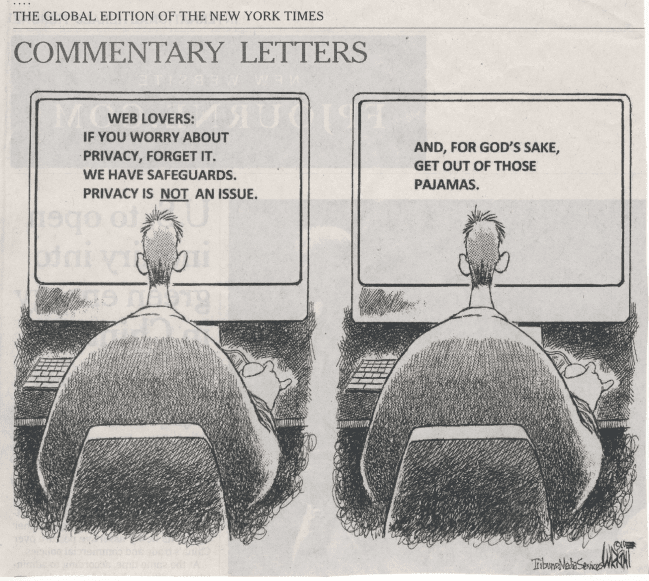The issue of privacy is a little schizophrenic. In any event, it is strategic and worldwide in scope as far as developing one’s business online. We all say we want our privacy, and yet we do not want to be treated as a number. Yet, for businesses to provide us with customized and relevant offers that make us feel like VIP customers, they need to know our data. At its core, the issue of privacy is one of trust.
Between Zuckerberg (founder of Facebook, in case anyone does not know who he is) ruling out all notions of privacy and assurances from Eric Schmidt (Google CEO) that our data is not being mined, the only thing you know for sure is that virtually everything in our private sphere is knowable. The notion of privacy changes between cultures and who is the owner of the data is going to become of strategic importance — not just for business, but in diplomacy and politics. The battle for China’s internet market will be central to the Sino-American trade relationship. Google has struggled in China. Facebook is nowhere in China (with some 75,000 members, dominated by China’s copycat version of FB, renren, which is currently #111 worldwide in Alexa) and, I don’t believe they will make heavy inroads. Even if Facebook tailors its privacy settings and allows government oversight of the censoring, I do not believe that the Chinese will trust the Facebook organization.
For companies trying to implement a social media strategy, privacy is at the heart of the debate as well. How much does one want an employee leading his/her private life at work? How far can an enterprise allow or enable its employees to be personal in their daily business?
As loyal readers of this blog will know, I am a proponent for business getting personal. The trick is knowing where the limit lies between that which is personal and that which is private. In order for brands to create stronger contacts with their customers and potential clients, they need to provide an environment of trust, first between employer and employee, and then between employee and client. Trust is an eminently personal issue. With more trust, we might be less concerned with sharing our personal (not private) activities. In countries accustomed to invasive state censorship and oversight, the issue is more than sensitive. Germany’s resistance to Facebook might be a case in point. If companies — such as Google and Facebook — abuse their access to personal data, then there will be a backlash in all countries.
For now, consumers must be vigilant of what they share overtly, how to set their filters and, more importantly, to gage carefully what they are getting in return for the openness.











